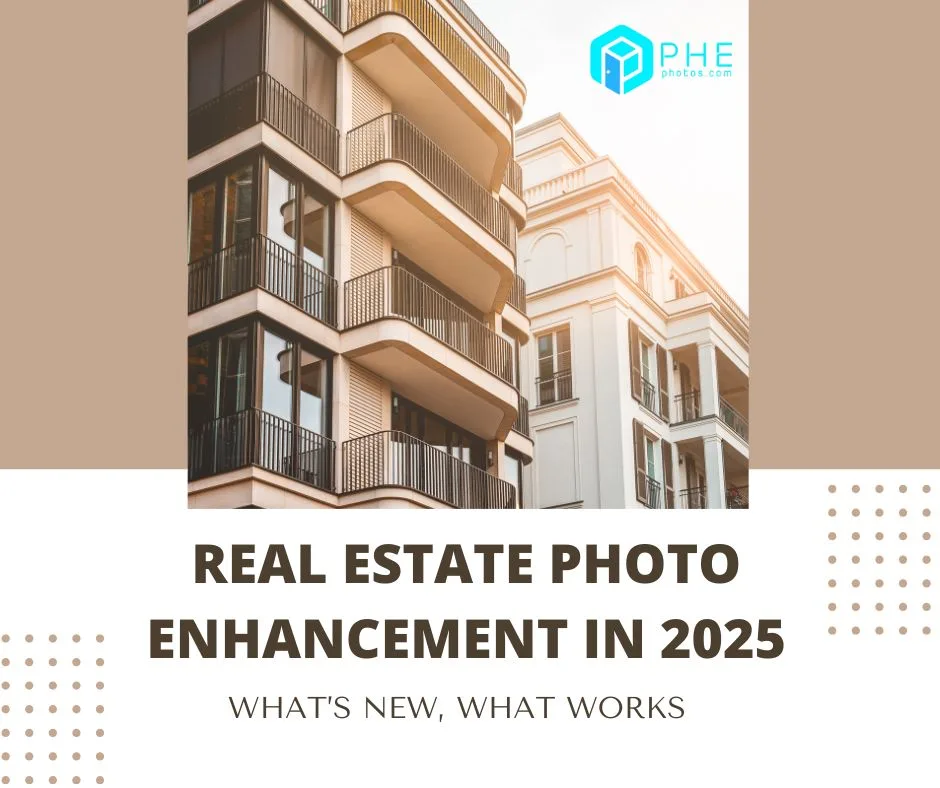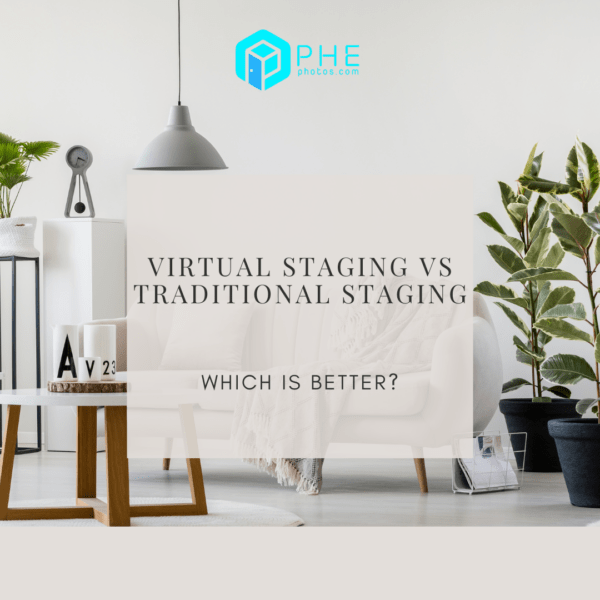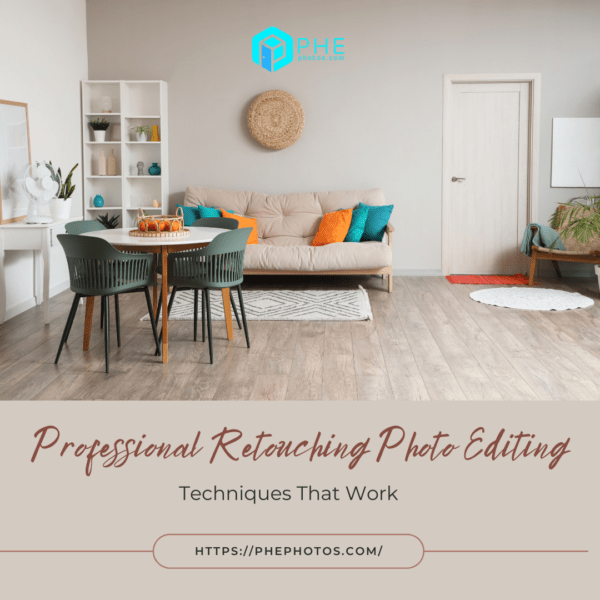Real Estate Photo Enhancement in 2025: What’s New, What Works
Every property has a story. In 2025, real estate photo enhancement tells that story more vividly than ever. Photos are no longer static visuals—they are strategic selling tools.
Why Enhanced Photos Are the New Standard
Homebuyers form first impressions in seconds. The continuous stream of online listings makes it more difficult to stand out. However, enhanced visuals can make the difference. According to a 2025 industry survey, listings with edited photos attract 120% more views and sell up to 32% faster. These numbers speak volumes. So, real estate agents are investing heavily in enhancement services.
AI Tools Are Changing the Editing Game
Artificial intelligence is not the future—it’s the now. In 2025, AI photo editors can adjust exposure, balance colors, and declutter images. All of this happens in seconds. Tools like LumaAI and REimager use machine learning to identify and fix flaws automatically. They don’t replace editors, but they make the process much faster. This shift lets photographers focus on creativity while machines handle repetitive work.
Virtual Staging Becomes Hyper-Realistic
Virtual staging has gone beyond fake furniture overlays. It’s now immersive. Using 3D modeling and AR support, companies can stage rooms to reflect exact buyer profiles. Want a minimalist style for young professionals? Or perhaps a cozy farmhouse vibe for families? Both are possible with today’s software. This year, 60% of top-performing agents say virtual staging helped close deals in under two weeks.
Drone Photography Reaches New Heights
The bird’s-eye view is powerful. Aerial shots not only show property size but also highlight neighborhood features. In 2025, high-resolution drone cameras provide sharper images with built-in stabilization. More agents are using drones to create cinematic video tours. These aren’t just flashy—they provide context. They show buyers what it feels like to live in the area.
Floor Plans Go Interactive
Static floor plans are out. Interactive ones are in. Tools like iGuide and Matterport allow buyers to explore layouts digitally. Click on a room, rotate the view, and measure furniture spacing. It’s a virtual walkthrough, without needing a showing. As a result, realtors report fewer unnecessary visits and more serious inquiries.
Lighting Edits That Set the Mood
Lighting makes or breaks a photo. While natural light is ideal, it’s not always accessible. Photo enhancement steps in with techniques like HDR blending and virtual twilight. Twilight edits make houses appear cozy and welcoming. On average, twilight-enhanced listings receive 30–40% more engagement online. That’s not just pretty—it’s profitable.
Green Features Deserve the Spotlight
Sustainability sells. Eco-conscious buyers look for features like solar panels, smart thermostats, and insulated windows. These features need to be visible. Editing tools can highlight green features subtly but effectively. Some companies also now offer “eco tags” for listings, which visually call attention to energy-efficient upgrades. This minor detail may appeal to people who care about the environment.
Lifestyle Photography: Selling the Experience
People don’t just buy houses. They buy lifestyles. That’s why lifestyle photography is booming. It captures real people in real moments—kids playing in the yard, someone sipping coffee on the porch. These visuals create emotional connections. They help buyers imagine their future lives in that space. That connection often leads to quicker decisions.
Short Videos Beat Long Tours
Attention spans are shrinking. Long video tours are losing ground to 30-second highlight reels. These bite-sized clips focus on best features—an open-concept kitchen, a spa bathroom, a scenic balcony. With captions and background music, they’re built for platforms like Instagram and TikTok. In fact, 70% of millennials say they prefer video previews before reading full descriptions.
Editing Turnaround Is Getting Faster
Speed matters. Clients want edited photos back quickly, sometimes within hours. To meet demand, many editors now use cloud-based platforms. These tools allow global collaboration and real-time feedback. Some services even offer 4-hour express delivery without compromising quality. That kind of speed can make a difference in competitive markets.
Editing Ethics and Authenticity
Enhanced doesn’t mean dishonest. In 2025, authenticity is essential. Over-editing can mislead buyers and damage trust. Reputable companies now follow strict guidelines—no removing structural elements, no fake views out the window. Instead, the focus is on enhancing what’s truly there. It’s about accuracy with appeal.
Future Outlook: What’s Next?
Photo enhancement is heading toward full automation and personalization. AI will soon adjust photos based on buyer behavior data. If a buyer clicks on homes with rustic kitchens, their listings may get custom-edited thumbnails with similar vibes. Personalization will drive conversions. Additionally, augmented reality tools may allow buyers to rearrange virtual furniture from their phones. These tools are already in beta testing.
Final Thoughts
Real estate photo enhancement in 2025 is no longer optional—it’s essential. Whether you’re an agent, photographer, or editor, embracing the latest tools will set you apart. Every edit is an opportunity to tell a compelling story. And in a crowded marketplace, that story can be the difference between a quick sale or a missed opportunity.
Read more:
Real Estate Photo Editing Solution: 2025’s Visual Marketing Revolution
What to do when the partners rise real estate photo editing pricing
Leverage Career When Build Clients Trust With Real Estate Photo Editing











